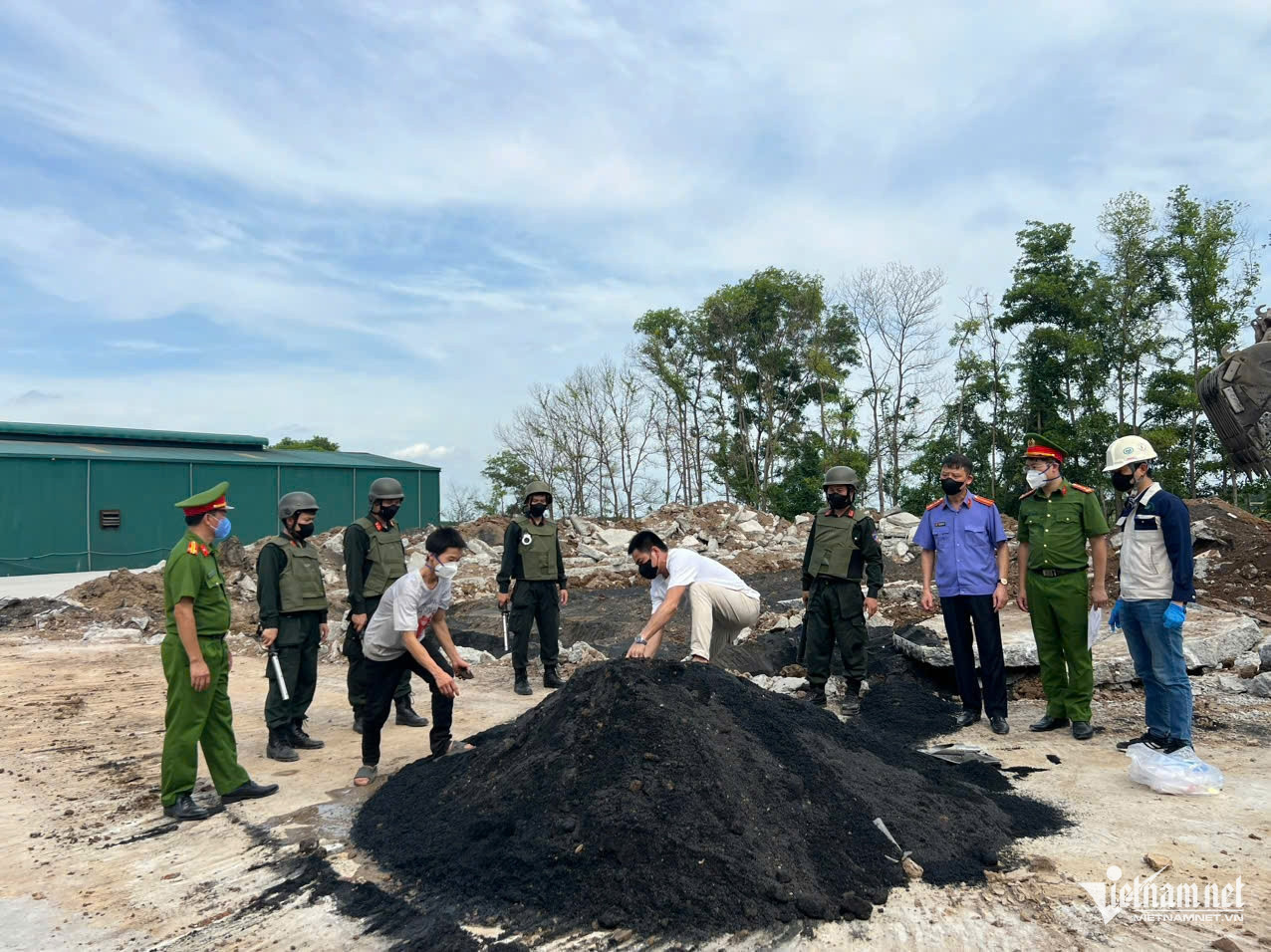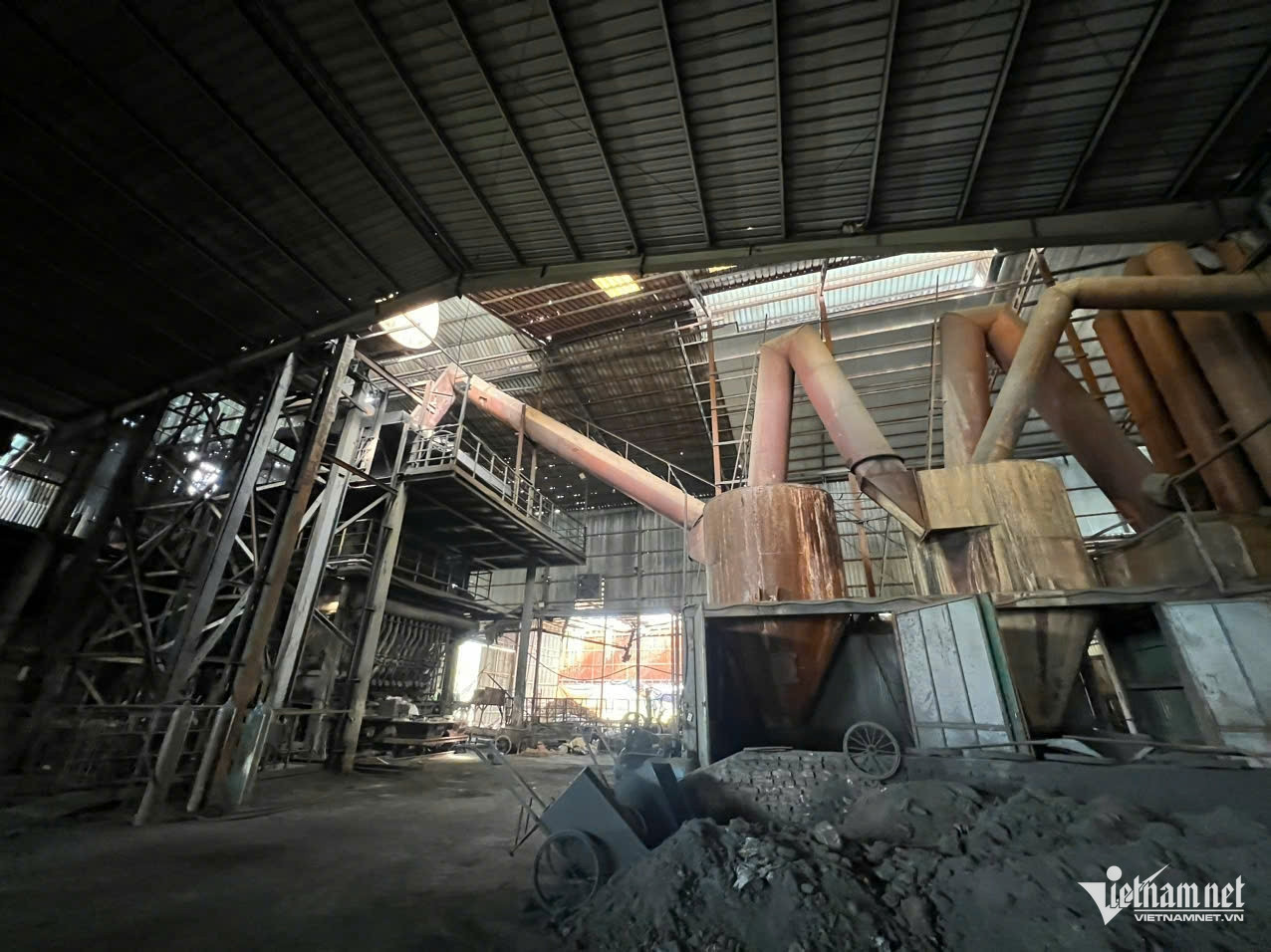Hanoi police have dismantled a major environmental crime ring responsible for illegally burying over 1.6 million kilograms of industrial lead slag in Soc Son district, posing serious risks to soil, water, and public health.

On June 26, authorities announced the prosecution of Vu Xuan Dong (born 1987, Vinh Phuc), Nguyen Phuong Hoan (born 1989), Nguyen Phuong Hung, also known as Hung “Beo” (born 1969), both from Soc Son district, and Mao Xin Song, also known as A Mao (born 1976, Chinese national), for environmental pollution.
The illegal facility, located in Dong Tin area, Phu Lo commune, was discovered after a tip-off from the Environmental Police Department of the Ministry of Public Security. The 6,000-square-meter plant, operating on agricultural land managed by Nguyen Phuong Hung, was part of a larger 15,000-square-meter area under the control of Vu Xuan Dong since 2019.
From July 2024, a group of Chinese nationals led by a man known as A Thao began installing unauthorized lead-smelting equipment. After A Thao left Vietnam in December 2024, Mao Xin Song took over the operations and continued the illicit activities.
Working with Vu Xuan Dong, Mao Xin Song coordinated the entire process, including sourcing raw lead slag, managing smelting operations, hiring Vietnamese workers (mostly ethnic minorities from Ha Giang and Son La), and exporting refined lead to China.

Each ton of raw material produced about 300 kg of lead and 700 kg of hazardous waste, which was buried around the plant - some sites dangerously close to the Ca Lo River, threatening water safety.
As waste accumulation exceeded capacity, Dong enlisted Nguyen Phuong Hoan to transport the slag using 4-ton trucks, paying VND 1 million (about USD 39) per trip. Mao Xin Song covered disposal costs at CNY 90 per ton (approximately USD 12.60 or VND 320,000).
To avoid detection, they covered the contaminated land with thick concrete layers. Investigators found that in just six months, the group produced 500,000 kg of lead and illegally dumped around 1,000,000 kg of toxic waste.
Authorities describe the case as a highly organized, cross-border environmental crime with lasting consequences for land, water, and community health. The investigation continues to identify additional suspects and assess the full environmental impact.
Tien Dung